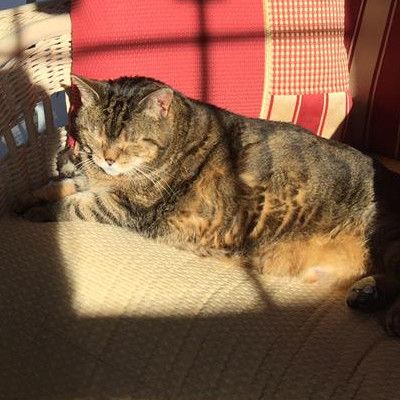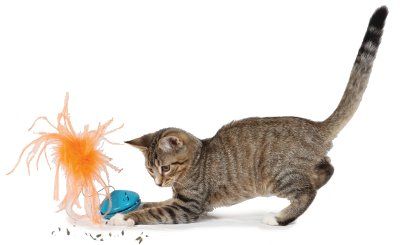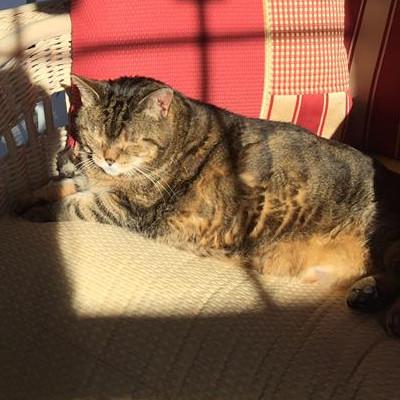Obesity in cats is reaching alarming proportions, particularly for these animals that designed by be lean, agile and light-footed. Keeping our furry friends fit and trim is important to helping them have longer, healthier lives.
Here are some interesting facts about obesity in cats.
-
 58% of cats are either overweight or obese, according to the Association for Pet Obesity Prevention.
58% of cats are either overweight or obese, according to the Association for Pet Obesity Prevention. - 90% of owners of overweight cats incorrectly identified their pet as a normal weight, according to one national survey.
- The same survey reported that a staggering 28% of cats are not just overweight but obese.
- Male cats are more likely to be obese than female cats.
- Early neutering is associated with an increased risk for becoming overweight and obese in some cats.
- Cancer, osteoarthritis, skin problems, heart problems, and diabetes are more common in obese cats than their lean counterparts
- Fat pets are getting fatter - the trend is toward “super obese.”
Morris Animal Foundation was founded by one of the first veterinary nutritionists, Dr. Mark Morris Sr., and continues to fund nutrition studies. The Foundation recognized the pet obesity problem early on and has funded numerous studies focused on overweight in dogs, cats and horses.
One recently completed study evaluated the response of a small number of overweight cats to caloric restriction combined with environmental enrichment strategies such as perching opportunities and food puzzles. The research team found that not only did cats lose weight, but also had improvement in behavior scores. Owners also gave high marks on owner satisfaction surveys.

A recently approved and funded study plans to evaluate the effect of avocado extract on obese cats. Avocado extract is reported to decrease body fat by redirecting a cat’s metabolism in ways that promote loss of body fat, and its addition to the diet might help obese cats lose weight and help lean cats stay trim.
Although pet obesity is a problem, the good news is that it is one of the most treatable and preventable medical conditions affecting cats. Your family veterinarian can help determine your cat’s body condition score, and develop a weight loss plan tailored to your pet’s needs. You also can visit the Association for Pet Obesity Prevention to assess your cat’s body condition, as well as learn weight loss tips and strategies.
It’s never too late to shed those extra pounds, and help your cat lead a longer, healthier life!








